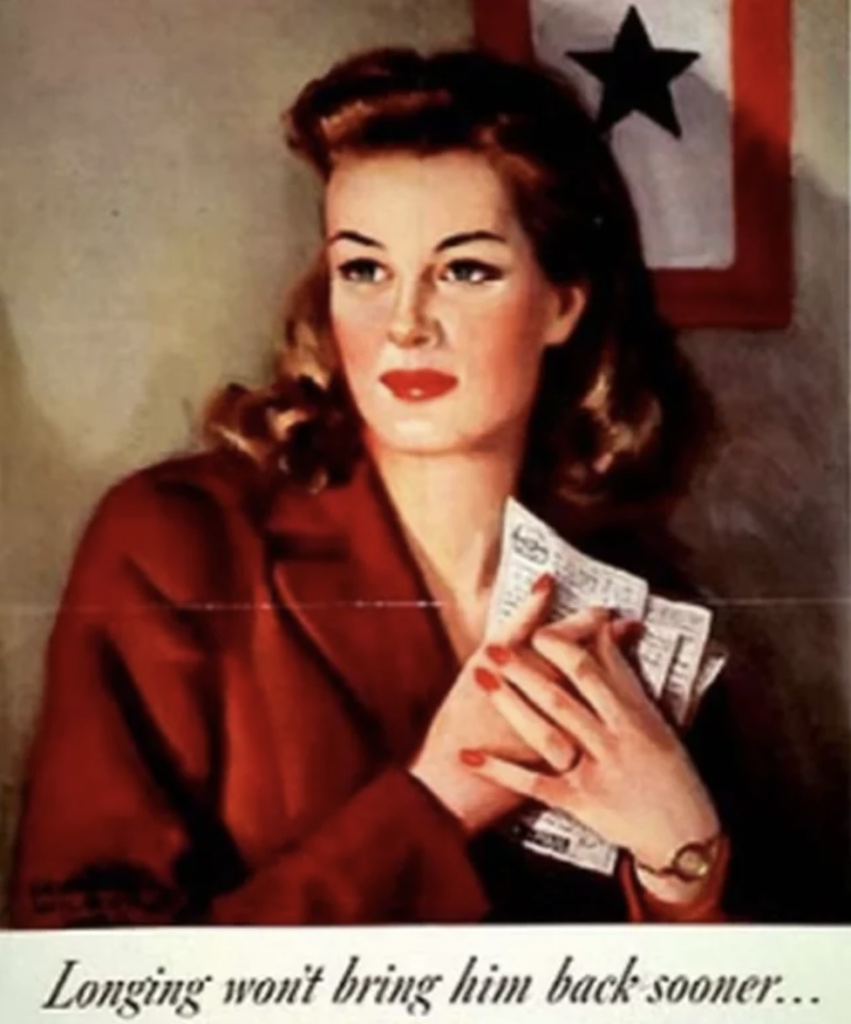
The absence of loved ones during war can bring emotional victories. It can bring risks too. In Ella’s War, our heroine and her beau show us just how this can happen.
Military families know it, especially those who have lived through deployments of their significant others to conflicts. Take Ella. I think you’ll experience her as a straight shooter and a faithful kind of person. What combination of factors, then, causes her temptation?
Separation of the kind engendered by war can sometimes bring two people together or tear them apart. With missed communications and miscommunications from afar, hero and heroine — changed by their separate experiences — can become convinced that they’ve lost one another.
In Ella’s case, the father of her son won’t marry her. They got pregnant together when barely out of high school and he has resisted being tied down. He’s a good person but pent up and afflicted by what today we’d probably call toxic masculinity. When he decides to give up his farm deferment, and enlists, and heads off to the war in Europe, the relationship is hit with all those stressors that so often affect military families, especially during war, including doubts, changes, and attractions. Meanwhile Ella is thrown together working on her farm with a man who is very different than Lee.
Today, sources differ on whether the divorce rate among military families up through current times has been significantly higher than the national general divorce rate. But being in the enlisted ranks and having long deployments involving combat appear to increase that risk. Then comes the challenge of reconnecting after being apart. Keeping secrets like the one Ella has doesn’t help.I would argue that loneliness is the most common theme in American literature. (More on that in a future post.) It’s an experience that can be redemptive, though. And for military couples, it makes victory even greater when a bond survives these dangers.